When it comes to running a successful business, maintaining client confidentiality is of utmost importance. A confidentiality agreement not only builds trust but also protects sensitive information from being disclosed to unauthorized parties. Crafting the right letter template for a client confidentiality agreement can be a daunting task, but it doesn't have to be! Dive into this article to discover helpful tips and essential elements that will guide you in creating a robust document that safeguards your client relationships.

Introduction and Purpose
The client confidentiality agreement serves to establish a legally binding framework for the protection of sensitive information exchanged between parties during business engagements. This document is crucial for sectors such as healthcare, legal services, and financial advising, where safeguarding client data is paramount. By outlining clearly defined terms regarding the handling, storage, and disclosure of proprietary information, the agreement aims to foster trust and transparency. Both parties commit to upholding confidentiality, thereby ensuring compliance with relevant regulations such as the Health Insurance Portability and Accountability Act (HIPAA) in the United States or the General Data Protection Regulation (GDPR) in Europe, which govern the ethical management of personal data and privacy.
Definition of Confidential Information
Confidential Information encompasses any data, materials, or knowledge shared between parties that is not generally known to the public, including but not limited to business strategies, financial reports, proprietary software, client lists, trade secrets, and intellectual property. This information may be documented in various formats, such as printed documents, digital files, or verbal communications, with the intention of maintaining its secrecy. Both parties must recognize that unauthorized disclosure of this information could lead to substantial financial liabilities, reputational damage, or competitive disadvantages. Specific examples of Confidential Information include market analysis reports, development plans for innovative products, internal policies, and proprietary databases, all of which require stringent safeguards to inhibit access from unintended recipients.
Obligations of the Parties
The obligations of the parties in a client confidentiality agreement encompass stringent measures to protect sensitive information. Each party (Party A and Party B) must recognize defined confidential information, including business strategies, financial records, and proprietary technologies. Both parties are required to implement safeguards to prevent unauthorized access or disclosure of this information. Clear protocols must be established for data handling, including secure storage methods and restricted access principles. Obligations also extend to informing all employees, subcontractors, and affiliates about confidentiality standards to ensure compliance. Any breach of these obligations could result in significant legal repercussions and potential financial losses, emphasizing the critical importance of maintaining trust in business relationships.
Exclusions and Exceptions
Confidentiality agreements serve as essential legal instruments designed to protect sensitive information exchanged between parties. Exclusions in these agreements, such as previously known information or public knowledge, allow certain data to remain unprotected. For instance, information obtained independently or disclosed due to legal obligations can be explicitly excluded from confidentiality terms. Exceptions might cover situations involving the disclosure of confidential information to affiliates or legal representatives, ensuring that necessary parties can access the information without breach. This framework, prevalent in sectors like technology and healthcare, safeguards intellectual property and personal data while promoting trust between collaborating entities. Such agreements might also dictate conditions under which the confidentiality obligations may cease, such as following mutual consent or after a specified duration. In preparing these documents, attention to detail is vital to clearly define the scope and limitations, ensuring legal enforceability and compliance with industry standards.
Term and Termination
The term of this Client Confidentiality Agreement is set for three years from the effective date, which will be established upon the mutual signing by both parties. This agreement may be terminated prior to the completion of the three-year period if either party provides written notice of termination at least 30 days in advance. Upon termination, all confidential information must be returned or destroyed, ensuring that no copies remain with either party. This includes data, documents, and any other proprietary materials related to the client's business, as outlined in Section 2 of this agreement. Understanding the importance of confidentiality, both parties shall adhere to the terms to protect sensitive information throughout the duration of this agreement and beyond cessation.
Letter Template For Client Confidentiality Agreement Samples
Letter template of client confidentiality agreement for freelance professionals
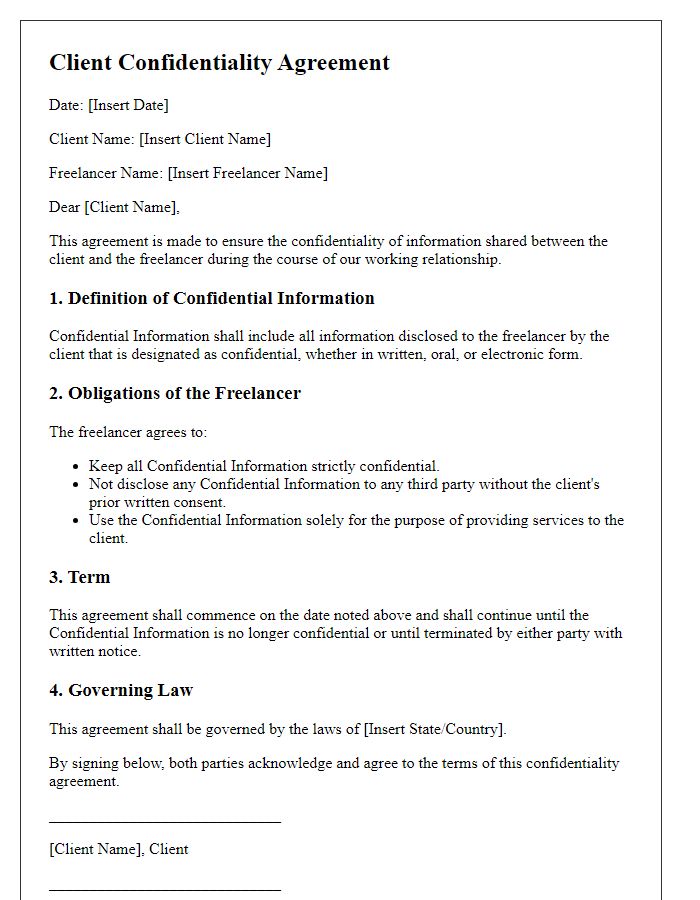
Letter template of client confidentiality agreement for business partnerships
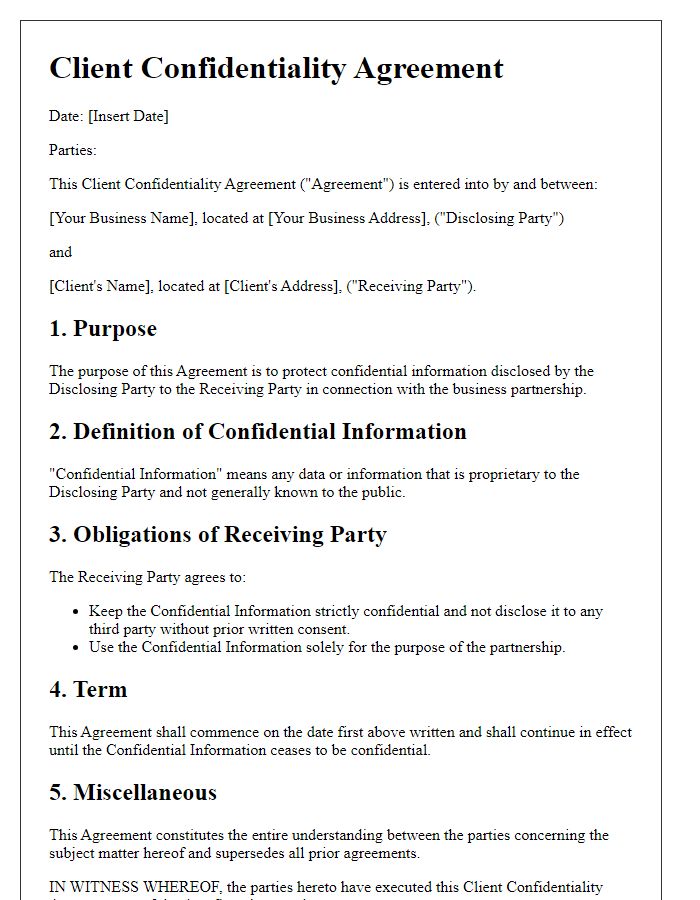
Letter template of client confidentiality agreement for healthcare providers
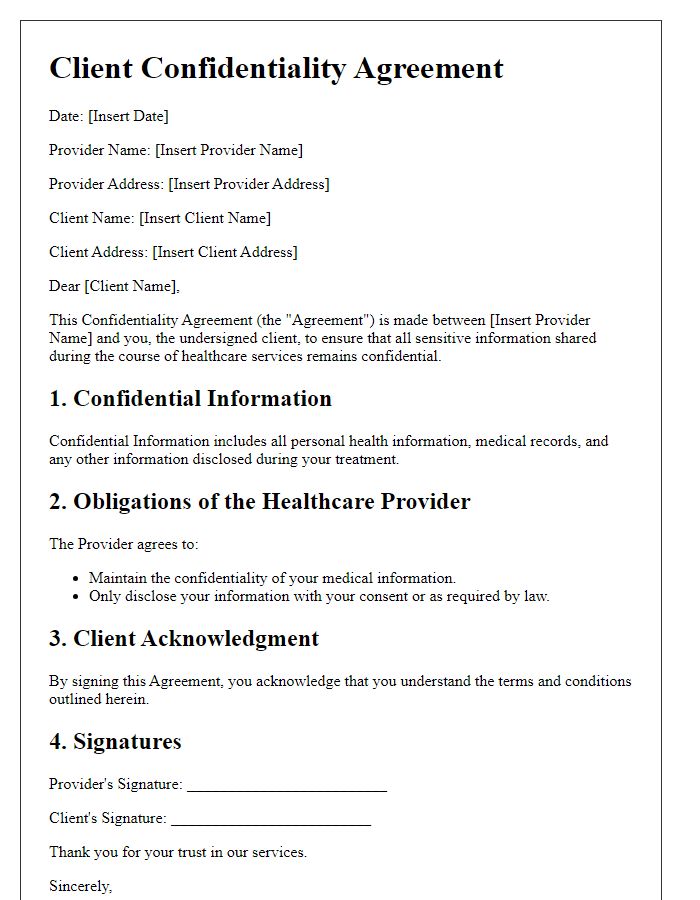
Letter template of client confidentiality agreement for legal practitioners
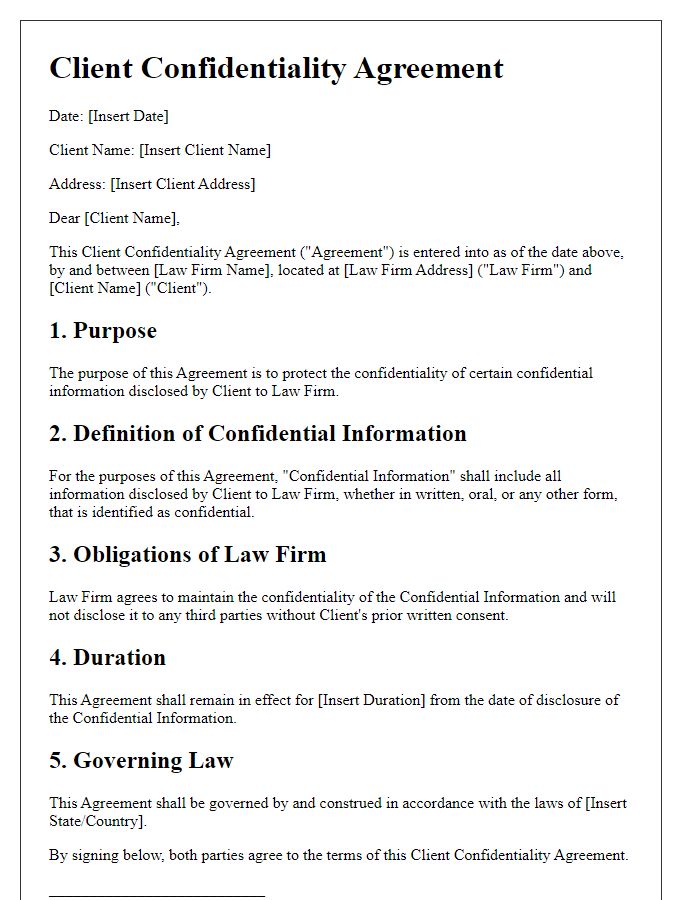
Letter template of client confidentiality agreement for software developers
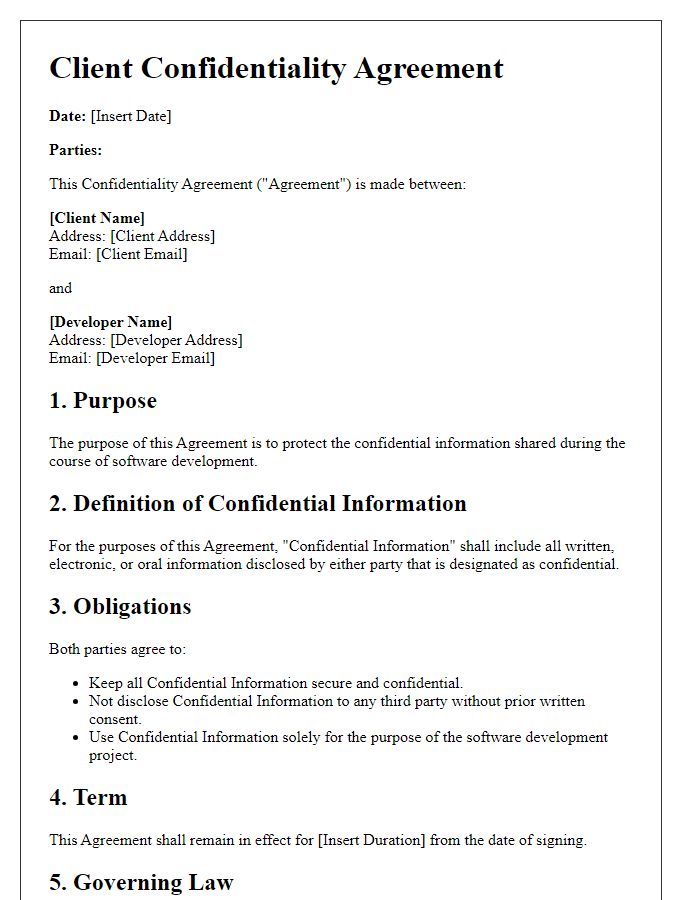
Letter template of client confidentiality agreement for marketing agencies
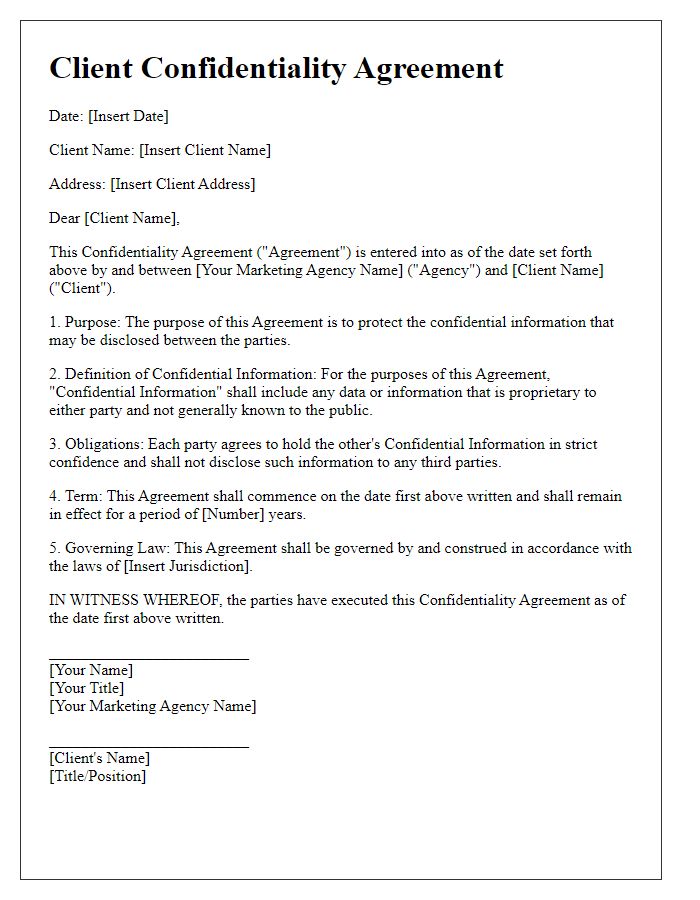
Letter template of client confidentiality agreement for financial advisors
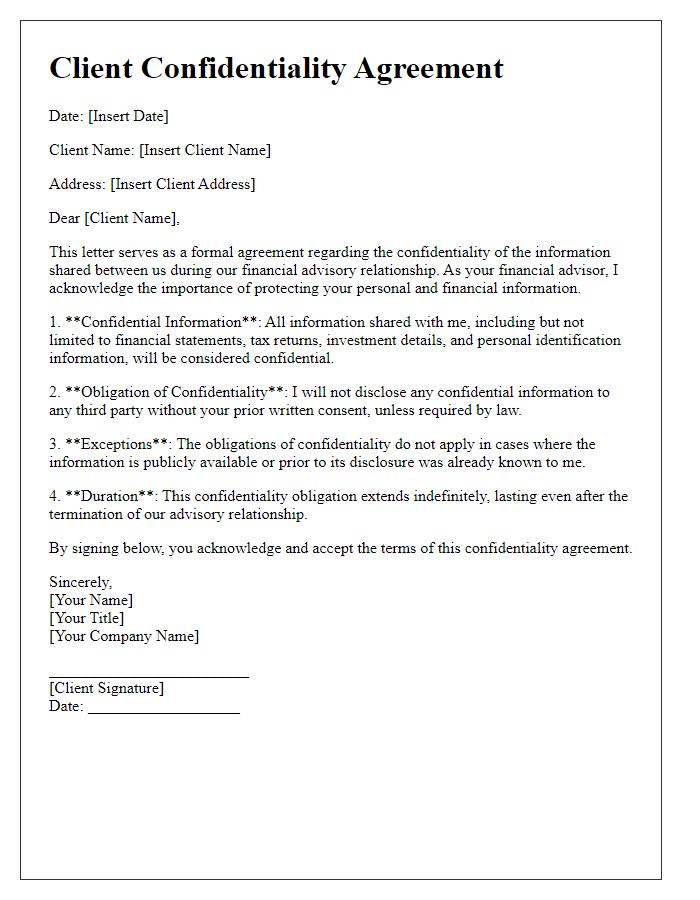
Letter template of client confidentiality agreement for research companies
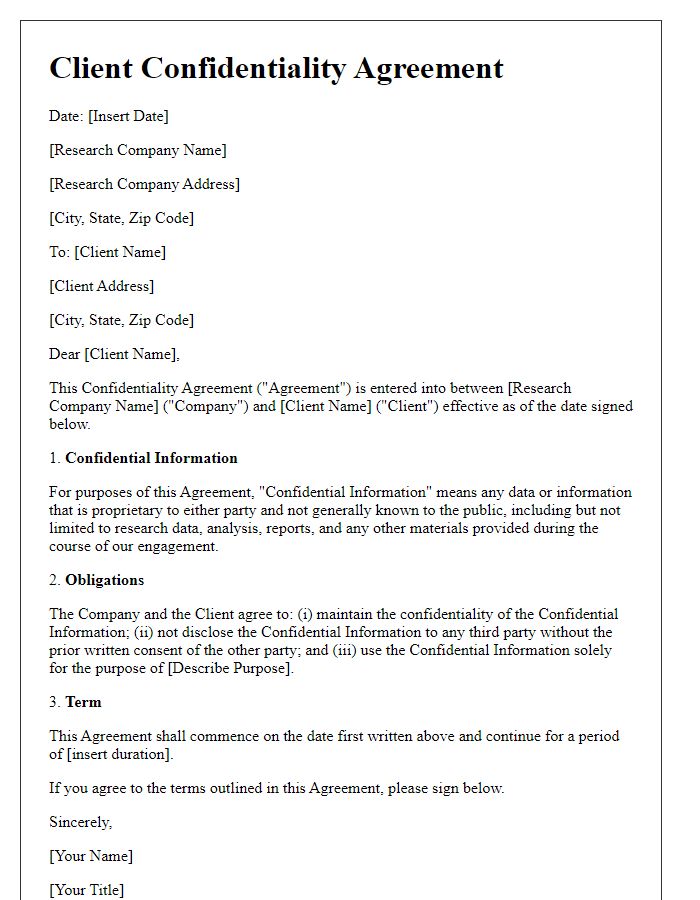

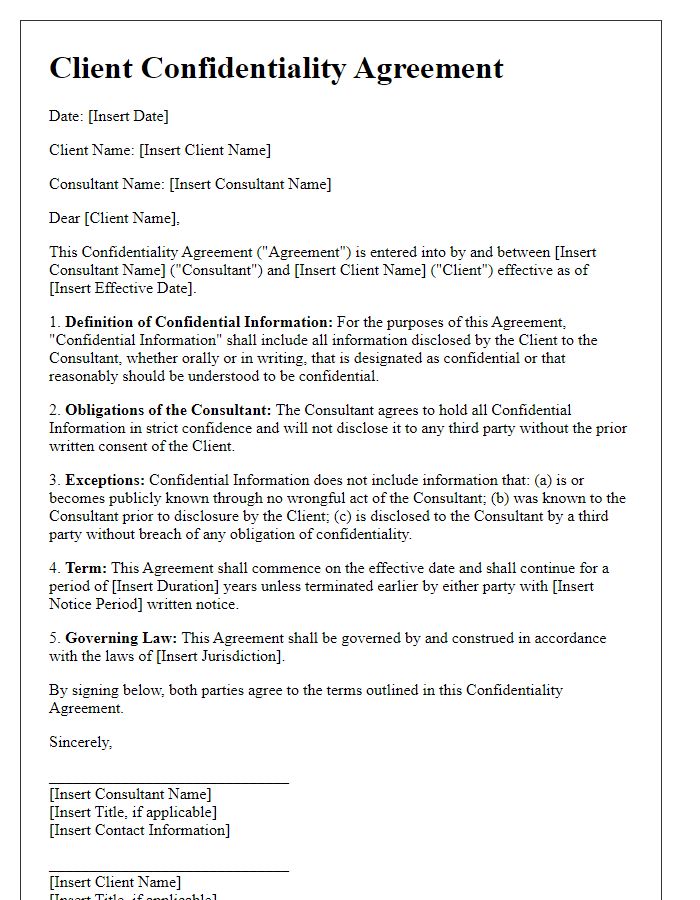
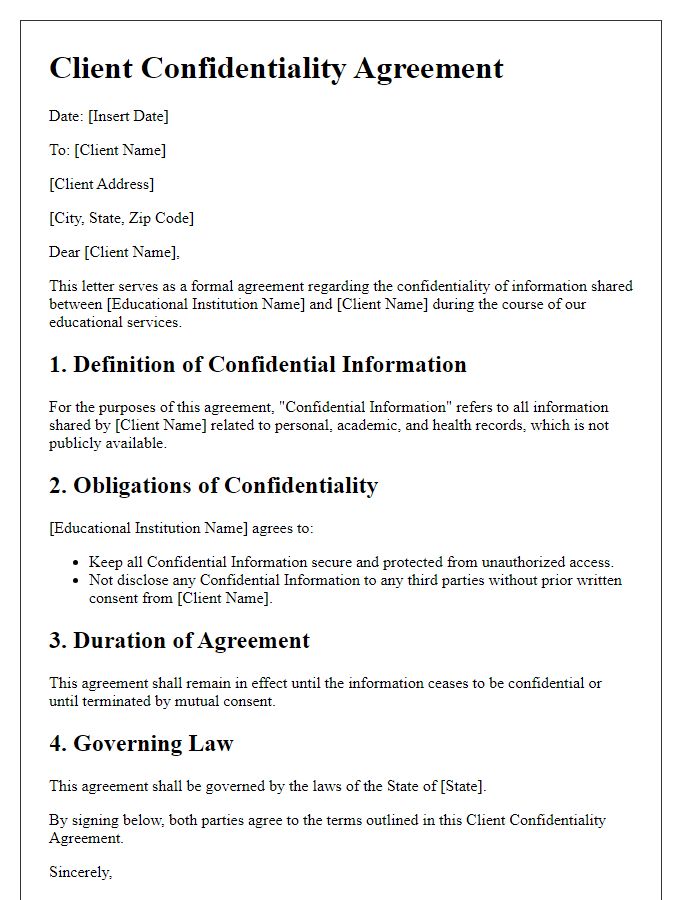


Comments